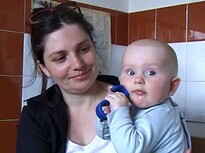Interview 23

For DTaP/IPV/Hib: Spoke to friends in the UK and Germany who were medically qualified. Experience of immunisation for her oldest daughter in Germany by anthroposophical doctors influenced her decision. She felt there was little opportunity to discuss immunisations with her own GP and health visitor.
At time of interview: cohabiting, two children, aged 10 years (daughter) and 3 months (daughter). Parent's occupation: Mother- Research Consultant. Father- Art Director (Film). Ethnic background: White-European. (Hungary).
More about me...
Don't assume that at the six week check, parents will be having the immunisation.
Don't assume that at the six week check, parents will be having the immunisation.
Listen to your instincts as you are likely to be the best judge for your child.
Listen to your instincts as you are likely to be the best judge for your child.
She believed that the immunisation schedule didn't take in to account children's individual needs.
She believed that the immunisation schedule didn't take in to account children's individual needs.
With this little one here I found, here in Britain I found it a lot more difficult with the whole immunisation because it, I don't, I didn't feel that they were actually looking at the individual child. One of my, I had a lot of friends who, whose babies got immunized, well, I found very, very young, and also when I thought they weren't completely healthy. So they had a bit of fever or a bit of snotty nose or whatever, which my GP in Germany wouldn't have immunised at. And here the nurse said, 'Oh, that's not a problem at all' and, you know, didn't even ask whether she had a fever or didn't check her at all. And, and I, I think that that is my concern. I think immunisation is such, is obviously very good and very important and has, you know, made a huge impact on, on the health of, of the population and, and children's lives. But it just seems that it's not looked, being looked at the individual child. So really they often, the nurse, the nurses or the, I, well, here it's nurses, just kind of do it very routinely and don't check whether that child is completely healthy. And that is something that I find quite concerning.

